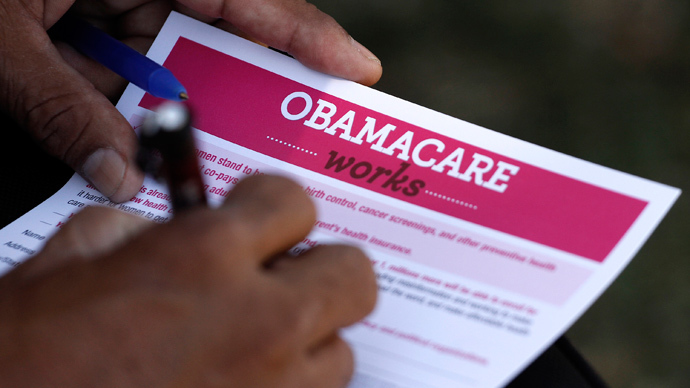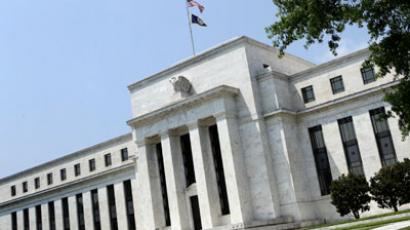House votes to delay Obamacare, raising government shutdown threat

The Republican-controlled US House of Representatives has voted to delay Obamacare by one year, raising the possibility of an Oct. 1 partial government shutdown. The vote plunges the US into fiscal crisis for the fourth time in last three years.
House Republicans pushed through the shutdown threat by 231 votes to 192, linking continued government funding through Dec. 15 to a demand that President Barack Obama delay his complicated plan aimed at extending access to healthcare for millions of Americans by one year. The vote went through after House Democrats and President Barack Obama refused to accept the Republicans’ conditions to keep the government operating.
The House passed another CR earlier Monday evening by a vote of 228-201 demanding a one-year delay in the health care law’s mandate that individuals buy health insurance. That continuing resolution was defeated by the Senate only about a half hour later by a vote of 54-46.
The House also voted 248-174 to repeal a medical device tax that is intended to help fund Obama’s health care programs under the 2010 law.
Republicans have damned the controversial health care plan, dubbed “Obamacare,” as one based “on a limitless government, bureaucratic arrogance and a disregard of a will of the people.”
Trent Franks, a Republican congressman representing Arizona, said that he often had to choose between “something bad or [something] horrible,'' Bloomberg reported.
"The American people deserve to have time to see what this monstrosity will do before it is implemented," Texas Republican John Culberson shouted as he spoke of Obamacare.
The reform was also branded “an attack and an assault on free enterprise and the free economy” by Republican Pete Sessions of Texas.
"To be absolutely clear, the Senate will reject both the one-year delay of the Affordable Care Act and the repeal of the medical device tax," said the Senate majority leader, Democrat Harry Reid. "After weeks of futile political games from Republicans, we are still at square one."
His objections were supported by House Democrats.
“The Senate has acted in a clear way to keep government open," House minority leader Nancy Pelosi said. "Instead, House Republicans are insisting on not one but two proposals to shut down government."
The move threatens to shut down the government on Oct. 1, as midnight Monday (September 30) marks the end of the fiscal year. And in a sign that lawmakers might be reading for such a development, the lower house unanimously approved a bill to keep paying US soldiers in case the government runs out of money to maintain many programs.
Although Republicans have threatened to cut off funding several times during Obama’s time in office, the last government shutdown happened in 1996 as a result of a bitter budget battle between Democratic President Bill Clinton and Republican speaker Newt Gringrich.
The deal could be to pass a short-term measure – from a few days to a week – to keep government ticking over.
Under the late 19th century Anti-Deficiency Act, the majority of US federal agencies are banned from incurring costs that have not been authorized by Congress. The law allows only certain essential government functions – such as the military or the courts – to keep operating in the absence of authorized legislative funding. This means that from Tuesday morning, hundreds of thousands of federal employees may be furloughed from their jobs, while social security and other benefit payments may be delayed. The economic impact of the possible shutdown would depend on its duration.
Obamacare – officially called the Patient Protection and the Affordable Care Act – is a bill signed into law to reform the health care industry on March 23, 2010. It aims at giving more Americans access to affordable health insurance as well as to reduce the growth in health care spending in the country.














